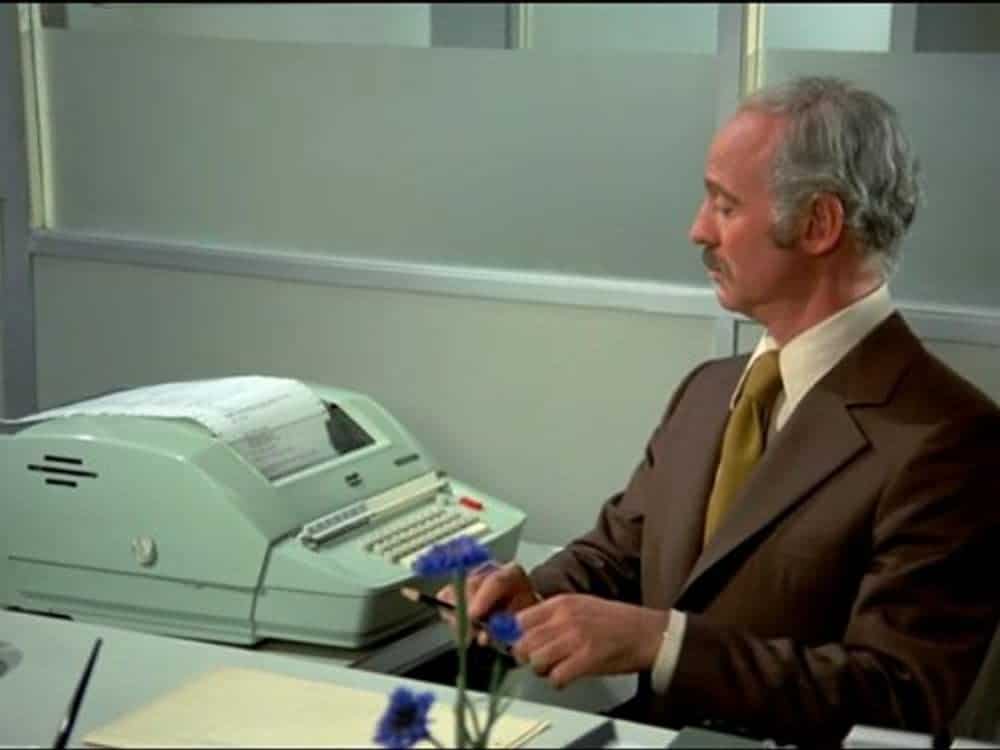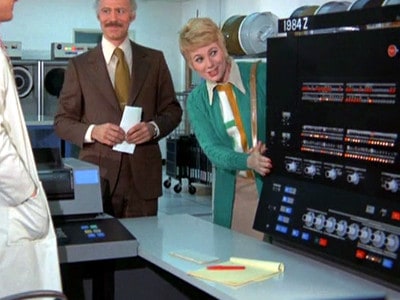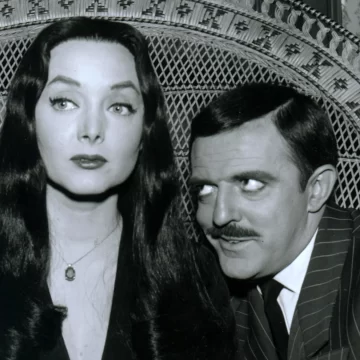A billing mistake can happen to anyone, even somebody in the Partridge family. Maybe a financial statement comes in the mail, and it’s higher than you expected, or it’s just completely inaccurate.
What should you do? Well, Shirley Partridge would tell you to call customer service and have a talk with them.
She would be right, of course. But in the 1973 episode “Forgive Us Our Debits,” The Partridge Family explores what can go wrong even when you do the right thing and question an inaccurate bill.
It’s a quite an episode, almost built for a pop culture and history and self-improvement and personal finance blog.
So we’ll unpack it all, from the financial lessons to some of the history surrounding the episode and whatever else we can come up with.
Today's "TV Lesson" Breakdown:
- The billing mistake starts with the mail
- Financial Lesson #1: Fix a problem, fast.
- Financial Lesson #2: If you can’t fix the problem, keep trying.
- Financial Lesson #3: Cut your losses if you can’t fix the problem
- Financial Lesson #4: Be calm and reasonable with debt collectors
- Financial Lesson #5: If you can’t get customer satisfaction, complain loudly.
- Financial Lesson #6: Quit when you’re ahead.
- Stray Historical Observations

The billing mistake starts with the mail
So this episode of The Partridge Family starts off with Shirley Partridge dusting some furniture and a brand new cuckoo clock on the wall. Her oldest daughter Laurie is dusting their piano. Danny Partridge, the middle son, comes down the stairs asking if the mailman has dropped by.
“Haven’t seen him yet,” Laurie says.
Danny grumbles about how the mailman can come during sleet and snow and rain, but on a sunny day, he’s not so fast.
We then learn that Danny is expecting $25 in the mail from entering a contest. He had to write an essay in 25 words or less about how much he loves ginger nut bars.
“You hate ginger nut bars,” Shirley says.
“But I love money,” Danny says.
(I had to look up “ginger nut bars” at this point on Google. They are a thing. I think they’re more popular in England than the United States.)
About this point, Keith conveniently enters the house with the mail, which doesn’t contain anything with $25 in it, but it does have a bill from Bartlett’s Department Store. There’s a letter with the bill, which Shirley reads: “Dear Customer, Barlett’s has gone modern. Rejoice. We’ve joined the computer age to provide customers with a faster, more efficient billing service.”
Keith wonders what kind of computer they’re using.
“By the looks of things, a sick one,” Shirley muses, and that’s when Laurie notices the bill for their new cuckoo clock.
It’s $290.
“It’s a mistake,” Shirley says. “The clock cost $29.”
That’s a pretty pricey clock. In today’s dollars, using an inflation calculator, that would be about $177.
Keith figures the billing mistake is due to the decimal point being put in the wrong place.
“Well, we’re going to put it in the right place,” Shirley says, heading for the phone.
“It wasn’t the computer’s fault. It was the guy who programmed it,” Keith says.
Financial Lesson #1: Fix a problem, fast.
Yes, I know the scriptwriters helped Shirley along here, but I have to give credit where credit is due. If I got a bill for $290 that should have been $29, would I have dropped everything to make a phone call? I hope so. But I think it’s just as likely that I’d put the bill in a to-do pile and would get to it much later. But, no, Shirley decided to nip it in the bud – and make a phone call.
So she calls the store and dang. Wouldn’t you know it? She gets a recording and is put on hold, to listen to music. Some things never change. Shirley hangs up.
“I’m not against automation,” she explains to her kids, “but it’s too much complaining to one machine because another machine made a mistake.”
Laurie agrees. “It’s dehumanizing,” she says.
“It’s progress,” Keith says.
Progress or not, Shirley decides to go to the store in person.
Financial Lesson #2: If you can’t fix the problem, keep trying.
Color me impressed. I know if I had had trouble with being on hold, I wouldn’t be driving anywhere to fix the problem. I’d put "fix billing mistake" on my “to-do” list for another day, and I’d call Bartlett’s Department Store later. Maybe eventually I’d get around to writing a sternly worded email. But Shirley goes right to this department store to complain. Good for her.
She finds the office of one Byron Atwater, the store’s credit manager. They have a nice talk, and while Mr. Atwater is initially skeptical that their computer could have made a mistake, he quickly realizes that it did – and is happy to rectify the situation. Mr. Atwater and Ms. Partridge head over to the computer room, in fact, so he can show her that he’s going to fix the problem.
The computer is a 1984-Z, he explains, and is as modern as can be. It’ll send out a new bill with the proper amount.
Shirley leaves Bartlett’s Department Store, pleased that everything is fixed.

Financial Lesson #3: Cut your losses if you can’t fix the problem
The next day, we learn that 1984-Z has not solved Shirley’s financial woes. She has received a bill for $2,900.
“Oh, no,” Mr. Atwater groans when he sees the bill. You can’t help but feel a little sorry for him – and for Shirley, who decides to pay the $29 and close her account. She will do her shopping elsewhere.
“No, please. Aren’t you overreacting?” Mr. Atwater asks.
“No, your computer is,” Shirley says.
Whether Shirley is overreacting, she’s acting reasonably. The 1984-Z is making everything worse.

Financial Lesson #4: Be calm and reasonable with debt collectors
When Shirley gets home, she learns that the 1984-Z is hooked up to a network of computers, and local businesses around town are getting the information that the Partridge family is a bad credit risk. The grocer won’t cash a check, and the Partridges are confronted by a debt collector, Harlan Laws, who shows up at their front door.
Harlan Laws looks a lot like the guy from Mel’s Diner (probably because he’s played by Vic Tayback, who played Mel on the TV series, Alice), and he wants the $29 that Shirley owes Barlett’s Department Store. Shirley firmly tells Mr. Laws that she has paid off the debt.
Mr. Laws says he’ll go to the store to see if Shirley’s story checks out, but he is clearly skeptical and hopes he doesn’t have to return.
“Round trips have a way of making me very nasty,” Laws says.
Geez…
But at least he leaves, and Shirley isn’t out another $29.
Financial Lesson #5: If you can’t get customer satisfaction, complain loudly.
Now, if you have a complaint, you generally are going to rage on Twitter or Facebook or write a review on Yelp. Back in 1973, at least if you were a fictional family on TV, you’d go on strike in front of the offending store. Laurie gets some of her friends to walk in front of Bartlett’s with picket signs.
“People yes, computers no,” the protesters chant.
In any case, it works. Mr. Atwater – and his boss, Mr. Bartlett – promise that they will get Shirley’s credit situation straightened out.
When Shirley and Laurie get home, Keith (playing baseball in the front yard with Danny) inquires how the protest went. “Have you ever seen a grown department store cry?” Laurie asks.
They all go into the house, happy as clams – until they see that all of their furniture is gone. The debt collectors came and took it away, they are informed by the youngest and rarely seen Partridges, Chris and Tracy.
Financial Lesson #6: Quit when you’re ahead.
Now, the show kinds of goes off the rails when it comes to the financial lessons we can learn from The Partridge Family. Shirley has managed everything masterfully with the help of her sensible daughter Laurie. But now Laurie and Keith and Danny end up sneaking into Bartlett’s Department Store, and they fiddle with the 1984-Z so that it sends Shirley a check for $50,000.
It’s fun stuff seeing Laurie, Keith and Danny team up to try and help out their mom, and you never get the sense that the kids are actually trying to be crooks – they just want to teach Bartlett’s some sort of lesson -- but The TV Professor can’t in good conscience suggest you try any of this in real life, unless you think it would be fun to wind up in prison. If you would like that, then by all means, study and analyze the last half of this episode.
In any case, Shirley gives back the $50,000 to a flustered Mr. Atwater – and even gives him two tickets to one of their shows. He asks how much he owes her. Nothing, Shirley says but smiles before saying, “We’ll bill you” and shutting the door.
Then we’re treated to a musical number sung by the Partridge family, and afterward, there's a crack or two at Reuben Kinkaid’s expense (that’s always fun), and, holy cow, Shirley learns that her cuckoo clock has stopped working!
She starts to declare that she’s going to take the clock to Bartlett’s customer service department and give them a piece of her mind – but then thinks better of it, and the family has a good laugh, the way series often used to do, just before fading to a close.
But Shirley’s instincts are right on. She has her credit rating back, and her furniture, and life is peaceful in the Partridge household again. So Shirley Partridge is cutting her losses and not going back to the store.
After all she has been through, it’s probably the right call.

Stray Historical Observations
Times have changed. To go to the Bartlett’s Department Store for the first time, Shirley changes out of her comfortable home clothes – which were perfectly nice – and puts on a sweater and more formal outfit. I don’t want to sound like an old fogey, and I certainly don’t dress up to go to a department store, but, yeah, times have changed.
Shirley’s financial troubles with the store was fairly realistic for its time. The year before her woes, The Chicago Tribune ran a story titled (and, boy, what a long title): "Who knows what evil lurks in your credit file?: How the credit bureaus and their computers keep tabs on your purchasing habits -- and how you might rate on a new credit-risk evaluation system that's now in the works."
One of the observations that the Chicago Tribune reporter, Jack Star, made was: "One of the troubles with the system is that the computer is quickly notified when a judgment is entered against a debtor but is not necessarily notified when the judgment is paid off. The bad mark on his record remains.”
Debt collectors were a different breed in the early 1970s. At first, I thought that Vic Tayback’s appearance as a debt collector at the Partridge family’s front door was more or less a Hollywood invention, and, yes, probably it was.
In the early 1970s, debt collectors routinely called people on the phone to demand payment rather than showing up at a front door. But when Tayback's character says to Shirley that if he has been lied to about her paying the store their $29, that he might get nasty? Very much in character for the times.
In April of 1974, The Chicago Tribune ran an article titled, “'Push them till they break': Bill collector terror tactics. Agencies operate by their own rules.”
The Tribune described how the debt collectors worked: “Some collectors pose as policemen, lawyers, deputy sheriffs or even federal marshals to get information or a few dollars in payment. A 59-year-old woman said she was confined to a hospital for a week after a collector told her that her 24-year-old son would be sentenced to as much as five years in prison if she didn't pay his $122.35 bill, a bill he claimed he didn't owe.”
The article mentioned how one recently hired collector was told to call a man, whose house had just been destroyed by fire and his five-year-old son had been hospitalized for severe smoke inhalation.
Apparently, the debt collector tried to get out of the assignment, and the boss tried to make his employee feel better by saying: “No matter what an S.O.B. you are to this guy, no matter how hard you hit him, you can't possibly make him feel any worse than he feels right now."
Where you can watch The Partridge Family (at the time of this writing): I don’t think any streaming service has the entire series, but you can find the first season for free on Crackle.com and seasons 3 and 4 on TubiTV.com. On cable, you can find it on fetv.com.
Articles similar to this Partridge Family blog post: This is so far the only Partridge Family blog post on The TV Professor and there are no other billing mistake blog posts, but of course, I’m going to recommend you check on this Brady Bunch blog post (about the history of house doctors).






Leave a Reply